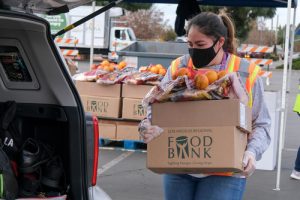
U.S. Sen. Roger Wicker (R-MS) on April 15 introduced legislation that would authorize $8 billion to fund the expansion of national service positions during a COVID-19 pandemic recovery period that would last through fiscal year 2024 to meet the scale of critical challenges.
“The COVID-19 outbreak has presented many challenges for our nation and national service can help us emerge even stronger from this crisis,” the senator said last week.
Sen. Wicker introduced the bipartisan Cultivating Opportunity and Recovery to the Pandemic through Service (CORPS) Act, S. 1165, with bill sponsor U.S. Sen. Chris Coons (D-DE) to amend United States service laws to prioritize national service programs and projects that are directly related to the response to and recovery from the COVID-19 pandemic, according to the congressional record bill summary.
National service programs administered through the Corporation for National and Community Service provide services that are in critical need during the nation’s COVID-19 recovery and includes programs like AmeriCorps, the 21st Century Conservation Service Corps, and AmeriCorps Seniors, which “should be expanded to meet the needs of this moment,” according to a one-page bill summary provided by Sen. Wicker’s office.
“Our nation’s full recovery from the pandemic will require an all-hands approach,” Sen. Wicker said. “Boosting the ranks of our service corps is a cost-efficient way to get communities the help they need.”
If enacted, S. 1165 would envision corps members providing a broad range of social services to support U.S. recovery efforts consistent with the programs’ existing activities and expertise, such as assisting educators in helping students overcome learning loss; expanding throughput at food banks and delivery services that combat nutrition insecurity; supporting outreach efforts to those experiencing homelessness; and promoting conservation, environmental resilience, and natural resource preservation, Sen. Wicker’s summary says.
Among several provisions, the bill would prioritize funding for entities serving communities disproportionately impacted by COVID-19 using culturally competent and multilingual strategies, and community-based organizations in rural or high-poverty areas or tribal communities, especially where they propose to recruit participants to serve in their own communities, the summary says.
Among the other 15 lawmakers who joined Sen. Wicker in cosponsoring S. 1165 are U.S. Sens. Susan Collins (R-ME), Roy Blunt (R-MO), and Bill Cassidy (R-LA).



